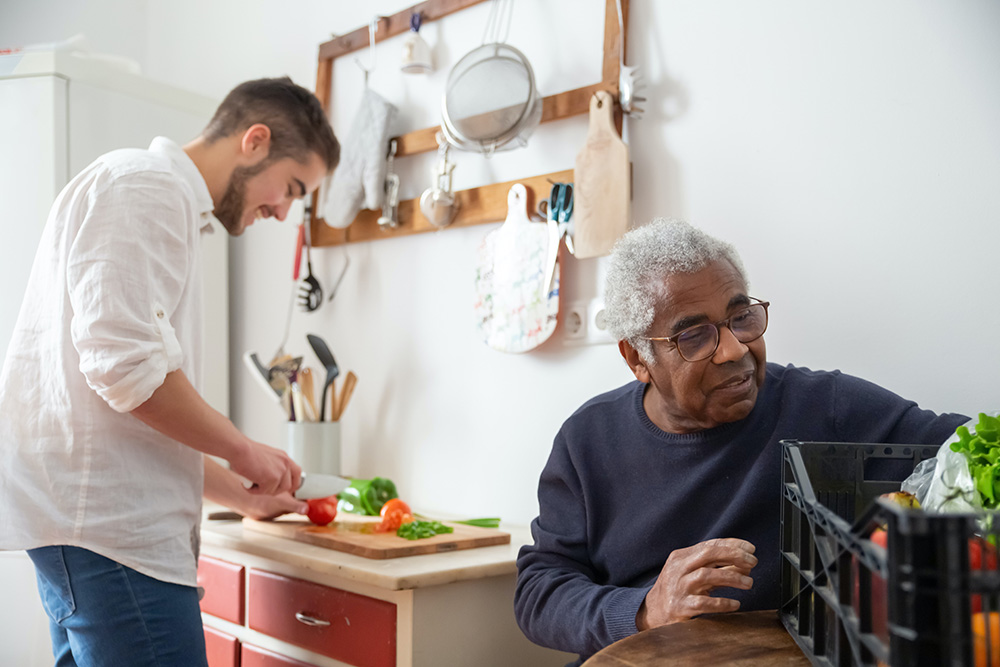Paving the Way for Choosing the Right Care Setting
In our last newsletter, we discussed the changing needs of our ageing loved ones (ALOs) and explored how we might be able to support them as their needs grow, and ways in which we can help make that transition into later life as smooth as possible for both our parents and for us as we step up to support them.
Something to consider is what would happen today if you needed to speak to your ALO’s GP in the event of an illness or emergency. Naturally, the GP practice is bound by patient confidentiality. Often, for our elderly relatives, understanding medical diagnoses, when and how to take medication, and keeping track of appointments can be overwhelming, and our help will inevitably be needed sooner or later. For this reason, it’s best to pre-empt any hurdles in the future. You may be surprised to learn that most GP practices will accept a verbal request from your loved one to add your details to their medical records. By arranging this now, you can ensure that when the need arises, you’re authorised to speak on behalf of your loved one. This will help in keeping track of any medical conditions and knowing when to step in if you feel they might need extra support at the doctors. In the spirit of planning and preparing for shocks, it’s definitely one of those things that’s best done when all is well, rather than a knee-jerk reaction to an emergency. And like most of those things, we tend to put them on the back-burner, precisely because ‘all is well’. Make an appointment to do this as soon as you can – we never know what’s round the corner!
When you feel the time is approaching to research care options for your loved one, it can be a complex and time-consuming process. Where to begin?! The prospect can feel really overwhelming. A good place to start might be with a care needs assessment, provided by your local council. Your loved one is entitled to this regardless of their financial status. It can also help put your loved one ‘on the radar’ for any benefits they may be entitled to (as mentioned in Part 1 of our post). This assessment, usually by an occupational therapist or nurse, can help with the very tricky hurdle of accepting that extra support is needed and can help to ‘de-personalise’ the process between you and your parents. Even the thought of uprooting your loved one from their home, let alone negotiating their inevitable reluctance, can be overwhelming and difficult to navigate. A good care specialist will usually be sensitive to this emotive and delicate issue, and trained to frame the discussion in a positive light. If a full-on plunge into residential care isn’t quite right yet, perhaps a stepping-stone might be to look into ‘sheltered housing’ options which will help your loved one to retain some independence, but also keep them safe. There are some misconceptions about these provisions. They are often bright, modern and well-maintained, close to transport links and importantly, have the reassurance of help at hand around the clock. Abbeyfield is an independent charity with many facilities across the UK. You’ll probably find you have one local to you or your loved one. There’s lots of information on their website, including more sound advice on this very topic. Other charities offer similar settings such as Friends Housing Bristol. Once again, Age UK is a great resource for information on sheltered and assisted housing options.
You may feel that the time has come for your loved one to make the move into a residential care home, but again, where to start?! The best place to begin can often be word of mouth – after all, personal positive experience is the best endorsement, particularly when it comes to something as precious as our nearest and dearest. It’s worth enquiring around your ALO’s social network – friends, neighbours, church or GP practice. Age UK and CQC are good starting points for an online search of providers by postcode. When you’ve narrowed down your shortlist and arranged a visit, be prepared beforehand with a few key questions:
- Are you made to feel welcome?
- Can you visit anytime?
- Can residents bring their own furniture and personal items?
- Do residents have freedom to come and go, participate in activities, or have the right not to, as they so wish?
- Are their personal preferences respected?
- Does the facility retain staff?
- What is the Covid policy post-lockdown?
- Will it restrict your time spent with your loved one?
Be honest with yourself about journey time – what might seem like ‘just round the corner’ may feel a long haul if visits need to be stepped up in the event of emergency or illness.
Once again, Age UK has some great resources online to help guide you through. They provide a free PDF checklist of questions to ask when considering a care home.
We don’t need to say that a move into residential care is an enormous, life-changing step. It is understandable if we view it as that dreaded relinquishing of independence, or ‘the beginning of the end’. The initial transition can and probably will be difficult. However, with patience and understanding, it really can be a new start that has an immeasurable positive impact on both our own, and our loved one’s peace of mind and our collective well-being.
Stay tuned for our next post. In Part 3 we’ll explore some of the financial questions around paying for care, and how we might be able to help prepare our loved ones for the future.








